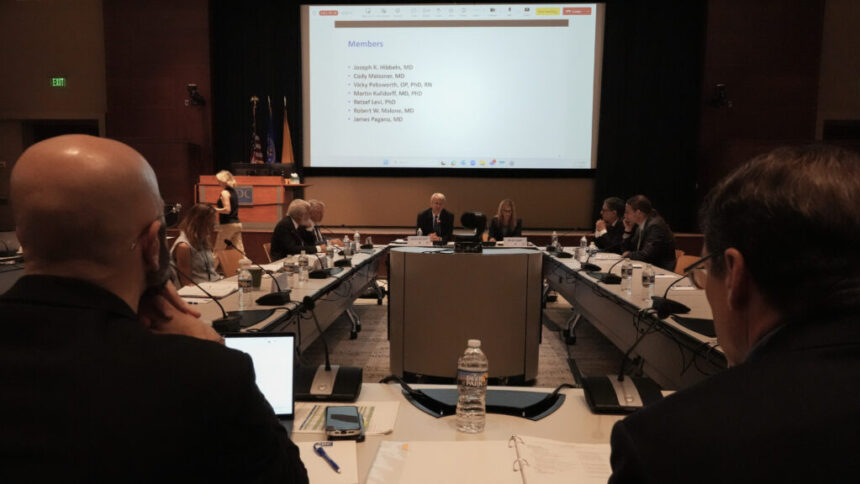The recent meeting of the health secretary Robert F. Kennedy Jr.’s Advisory Committee on Immunization Practices was a contentious affair that saw the airing of pandemic-era grievances and the adoption of a long-dismissed anti-vaccine talking point into U.S. national policy. The 13-hour meeting was marked by technical issues, forgotten procedures, and a public comments session where experts from health organizations expressed alarm.
One panelist raised concerns about a surge in flu deaths this year, suggesting a possible link to a “pattern of broad-based energy of some type.” Another member, with public health credentials, urged his colleagues to stop rehashing old concerns that had already been thoroughly investigated and debunked by the Centers for Disease Control and Prevention (CDC). Despite his reassurances that vaccines are safe and effective, there were still lingering doubts among some panelists.
The meeting culminated in a significant shift in U.S. vaccine policy, with individuals who have long-held objections to public health practices now having a say in critical health recommendations for the entire nation. This new era in vaccine policy is concerning to many experts, with some calling for the disbandment of the committee or legislative action to preserve its integrity.
One of the key decisions made during the meeting was the recommendation to ban thimerosal, a preservative long targeted by anti-vaccine activists, from flu vaccines. This move has raised further questions about the direction of U.S. vaccine policy and the influence of individuals with ties to the anti-vaccine movement on important health decisions.
As the debate around vaccines and public health continues to evolve, it is clear that there are deep divisions within the scientific and medical communities. The outcome of this meeting highlights the need for ongoing vigilance and scrutiny when it comes to making decisions that impact the health and well-being of the population.








